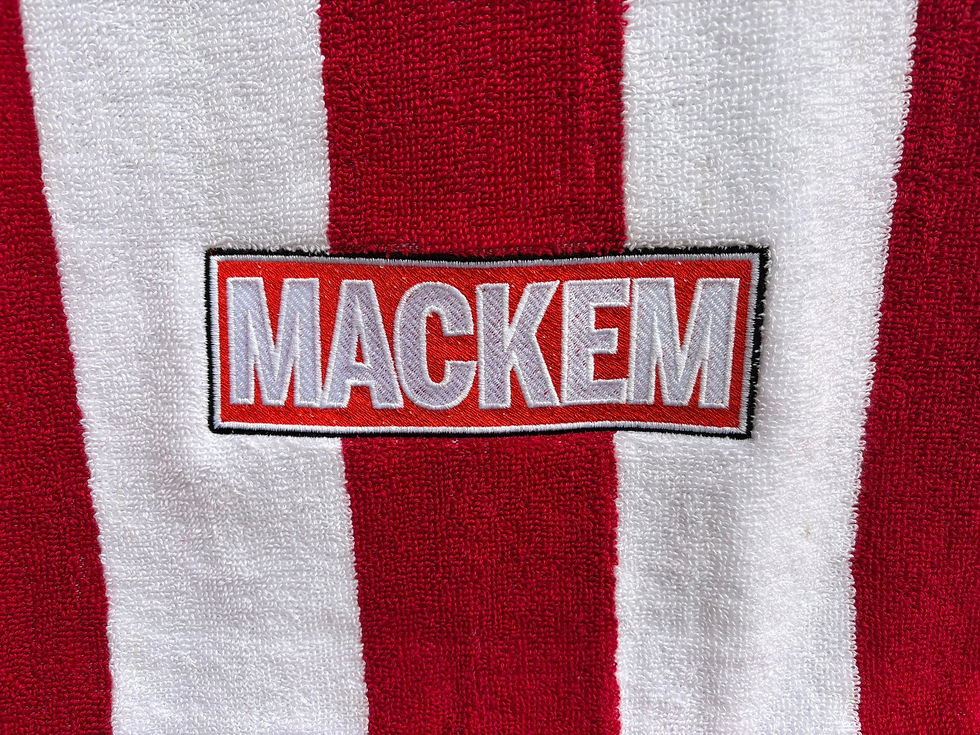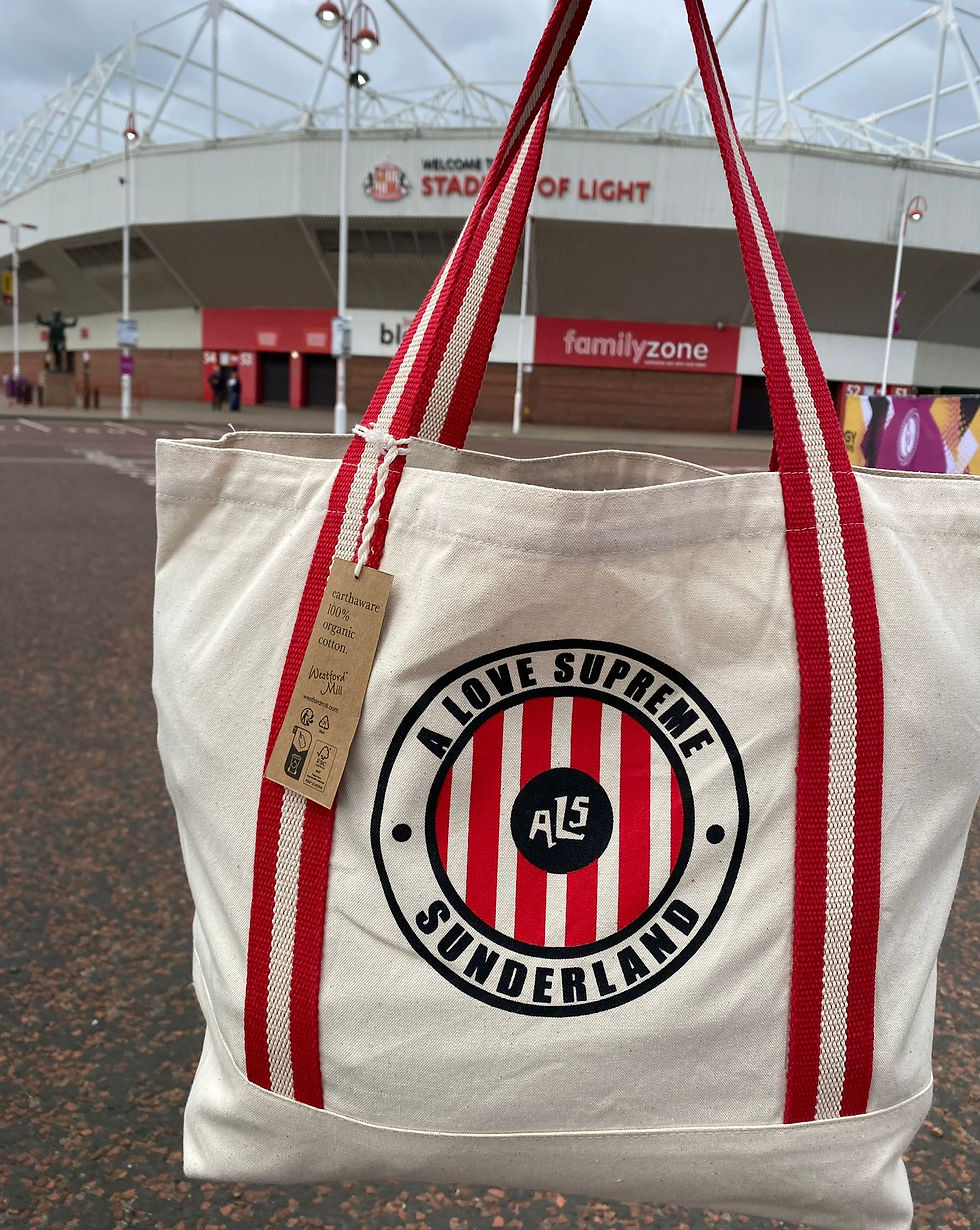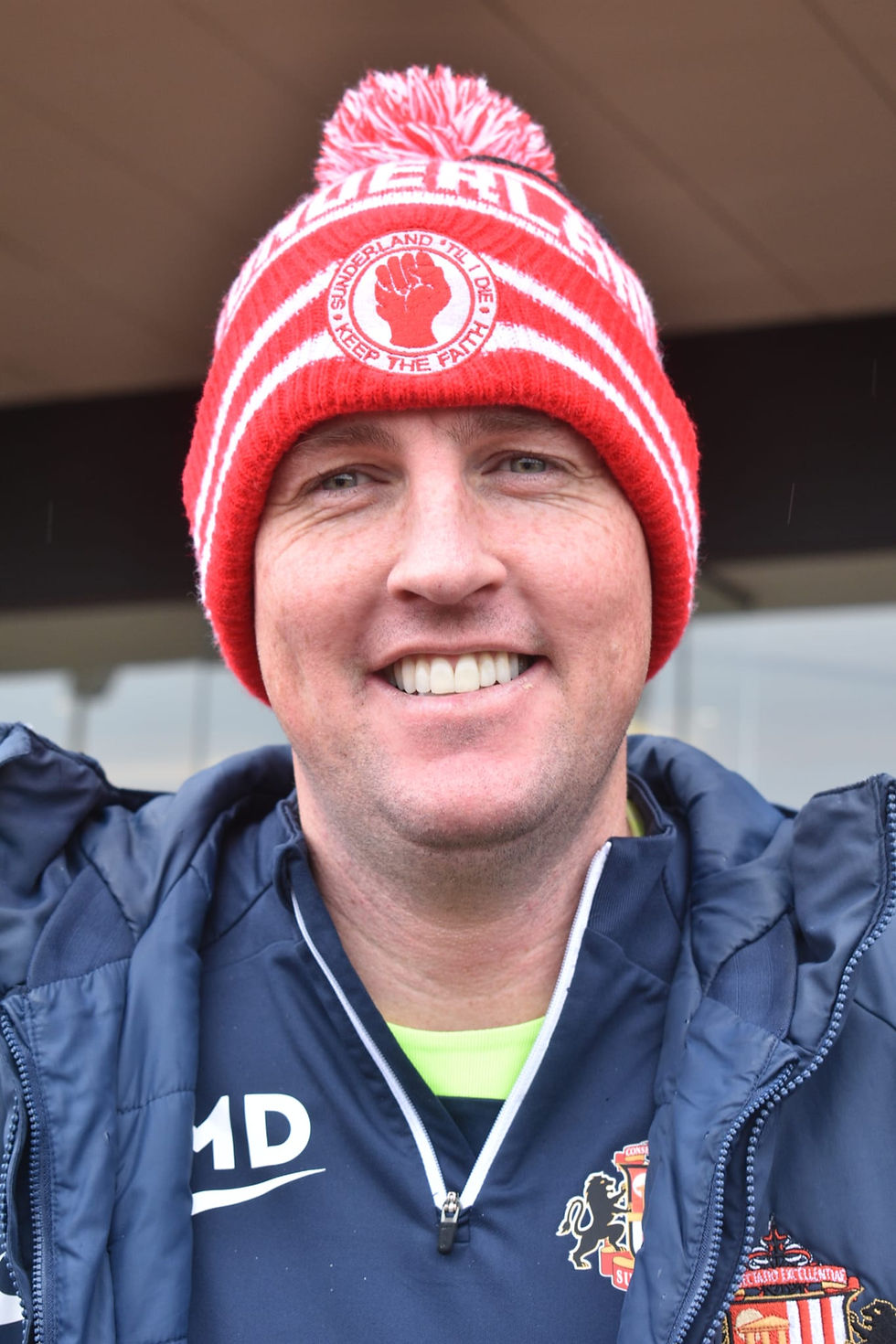OTD: SAM ALLARDYCE DEBUT
- BY ADAM GRANOFSKY
- Aug 16
- 4 min read

On this day in 1980, future manager Sam Allardyce featured for the first time as a Sunderland player. We would defeat Everton 3-1 at Roker Park in the First Division.
Allardyce began playing in 1971, coming through at Bolton Wanderers. After nine years at Bolton, he came to Sunderland where he played for just one year. Sunderland manager Ken Knighton offered Allardyce £300 per week, which more than quadrupled his wage at Bolton!
The defender was solid on Wearside, but only played for a year before new manager Alan Durban left him out of the team for the start of the 1981/82 season, making his departure inevitable.
Allardyce played for a number of clubs throughout his lengthy career including Coventry City, Huddersfield Town and a return to his boyhood club of Bolton Wanderers.
Towards the end of his career, he signed for Preston North End but by this time, Allardyce was considering life beyond retirement and had applied for vacant managerial roles, including York City and Notts County. He eventually joined West Bromwich Albion as a player-coach in 1989, before doing the same role at Irish side Limerick.
Allardyce’s first high-profile job as a manager was when he took over at Bolton in 1999.. The team was extremely talented, with the likes of Eidur Gudjohnsen and Jussi Jaaskelainen among others. They were in the bottom half of Division One when Big Sam took over but Bolton managed to reach the play-off final.
As well as progress in the league, Bolton reached the semi-final of both the FA and League Cups. Allardyce was awarded with a bumper 10-year contract and won promotion in the 2000/01 season through the play-offs. After consolidating in the Premier League, Allardyce began to build a superstar team with the likes of Jay-Jay Okocha, Fernando Hierro and El Hadji Diouf.
The talented Bolton side finished sixth in the 2004/05 season, qualifying for the UEFA Cup for the first time in the club’s history. They did well in Europe, going unbeaten in the group stages before losing to French giants Marseille in the knockout stages.
In the following seasons, Allardyce’s men were consistent in the league. His relationship with chairman Phil Gartside became strained after the owner refused to give Big Sam the funding to push for Europe, with the gaffer eventually resigning with Bolton fifth in the league, with two games left in the season, in order to join Newcastle United.
Things didn’t go to plan at St James’ Park, despite Allardyce’s new team getting off to a strong start. They had a poor run of results leading up to Christmas and Allardyce resigned in January after failing to beat the bottom two sides, Wigan Athletic and Derby County.
After almost a year out of a job, Big Sam joined Blackburn Rovers where he saved them from relegation, before solidifying them in mid-table. However, he was sacked by new owners the Venky’s. He then went to West Ham United, who had just been relegated. His style of football, despite being effective, was hated by West Ham fans who were sitting third in the Championship. They called for less long balls and more passing on the ground.
West Ham were promoted via the play-offs but Allardyce was still splitting opinion at Upton Park. His wheeling and dealing in the transfer window continued, bringing in the likes of Andy Carrol and Stewart Downing. For a number of years the Hammers were consistent in the Premier League but his contract ran out in 2015 and was not renewed.
With Sunderland in relegation trouble once more and Dick Advocaat struggling to pick up points, the Dutchman resigned. Allardyce, who had been perpetually linked with the job for the last decade, finally took over on Wearside to mixed fan reaction. Many saw him as a safe pair of hands, whilst others argued he was a journeyman manager who wheeled and dealed, instead of a long-term appointment that the club needed to take it forward.
After a break from football following his West Ham departure, Big Sam was ready and raring to get back into the game. However, the early days of the Allardyce era saw us struggle for points. We’d only won three of Sam’s first 11 matches, including, of course, a customary 3-0 win against the Mags in his second game in charge.
After a run of five defeats in a row in December, the lads found themselves stuck in the relegation zone for the turn of the New Year. Things began to change in January, with wins against Aston Villa and Swansea City. Improved performances, combined with a fantastic transfer window where we signed Jan Kirchoff, Lamine Kone and Wahbi Khazri, not to forget Dame N’Doye!
After a 2-2 draw at Anfield, we beat Manchester United at home to make another great escape look more likely. We went on a wonderful run towards the end of the season, losing just twice in 14 games including an amazing home win against Chelsea. The best match of the season undoubtedly though, was a resounding 3-0 win over Everton to send Newcastle down and secure our safety.
And then, Roy Hodgson put Harry Kane on corners and England came calling for Sam. He’d made it clear that the England job was the only job he’d leave Wearside for. Typical. To make matters even worse, he was involved in a scandal which led to him being sacked just one match into his England tenure, meaning he’s the only England manager with a 100% win record.
After spells with Crystal Palace and Everton, Big Sam joined West Brom in 2020. The Baggies were relegated under his watch, which was the first relegation of his career. Then in 2023, Leeds were struggling with four games to go, sitting outside the drop zone in 17th place on goal difference. Big Sam was called in to rescue Leeds, and first up was Manchester City, they lost 2-1, unsurprisingly, and the following game saw Sam grab his first point against the Mags in a 1-1 draw. The following two games were defeats and Leeds were relegated after finshing 19th in the Premier League. Allardyce and Leeds announced that he wouldn't be continuing in the Championship, which resulted in Big Sam breaking the record for the shortest managerial tenure in the Premier League with just 30 days in charge.




















































